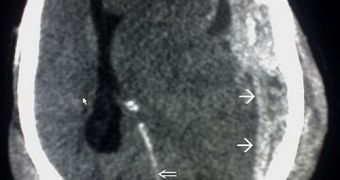In a new scientific study, it was demonstrated that none of the existing tests can be entirely accurate in determining the cognitive state of a patient, regardless of the severity of their neural injuries.
The investigation was conducted on six individuals, who suffered from a variety of impairments at a cognitive level. These ranged from a minimally conscious state to the locked-in syndrome.
The latter is a condition in which cognitive functions appear normal on a scan, but the patient is experiencing severe motor impairment. As such, these people can be thought of as locked inside their own bodies, hence the name.
Using functional Magnetic Resonance Imaging (fMRI), the investigators wanted to asses higher-level cognitive functioning in these six patients. The team behind the work is based at the Weill Cornell Medical College.
In order to test the response that these individuals had to a command, experts asked them to respond to a set of commands and questions, while the respondents were hooked up to an fMRI machine.
Following the study, it was revealed that no test currently exists that can be used to assess higher-level cognitive functioning in brain-injured patients accurately.
“We have to abandon the idea that we can rely on a bedside exam in our assessment of some severe brain injuries,” says Nicholas D. Schiff, MD, one of the corresponding authors of the study.
“These results demonstrate that patients who show very limited responses at the bedside may have higher cognitive function revealed through fMRI,” the expert adds, quoted by PsychCentral.
“Although everyone wants to use a tool like this, fMRI is not yet capable of making clear measurements of cognitive performance,” the researcher goes on to say.
“There will be a range of possible responses reflecting different capabilities in these patients that we have to further explore and understand,” Schiff explains.
The conclusions of the new study demonstrate that society should become more attentive to the needs of this particular population group. Until now, they only received sporadic attention, and that needs to change, investigators say.
“These findings caution us against giving too much weight to negative results and open our eyes to the diversity of responses one might expect from the wide-ranging group of severely brain-injured people,” says Jonathan Bardin.
He is the lead author of the new paper, and also a third-year neuroscience graduate student at the Weill Cornell Medical College. Details of the work appear in the latest online issue of the scientific journal Brain.

 14 DAY TRIAL //
14 DAY TRIAL //